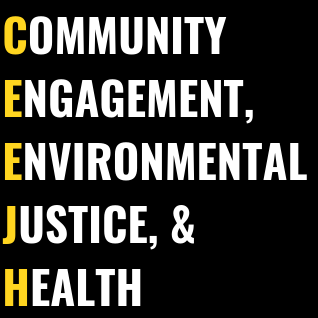Climate Justice
Climate change is devastating communities across the United States and the world. Here in the Mid-Atlantic, impacts manifest as annual flooding in historic towns, the swallowing of Chesapeake Bay Islands, frequent occurrences of high-heat days and other extreme weather events. Climate justice a) recognizes that these phenomena are most severely (and immediately) impacting frontline communities--especially communities of color and low wealth--who are contributing the least to greenhouse gas emissions or environmental degradation, and b) demands corrective political action to repair and protect these communities from further disparate impacts.
Climate change exacerbates and perpetuates socioeconomic inequalities. Climate justice centers the discussion on vulnerable, disenfranchised populations whose resilience is threatened by systemic overburdening of environmental hazards. Climate justice places people, their voices, and experiences at the center of climate response, and demands that attentioned be shifted toward these frontline communities who are systemically rendered least capable of adapting. It strives to transition towards policies and programs that can rectify these issues, and build a society that fosters equitable, sustainable and resilient communities.
Read more about our involvement in and contributions to climate justice below.
Bodenreider, C., Wright, L., Barr, O., Xu, K., & Wilson, S. (2019). Assessment of social, economic, and geographic vulnerability pre-and post-Hurricane Harvey in Houston, Texas. Environmental Justice, 12(4), 182-193. https://www.liebertpub.com/doi/full/10.1089/env.2019.0001
Wilson, S. M., Richard, R., Joseph, L., & Williams, E. (2010). Climate change, environmental justice, and vulnerability: an exploratory spatial analysis. Environmental Justice, 3(1), 13-19. https://www.liebertpub.com/doi/abs/10.1089/env.2009.0035





